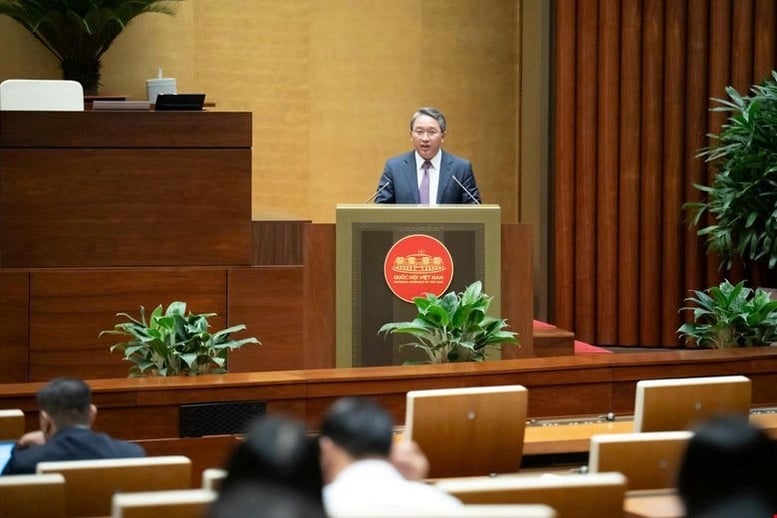
Minister of Justice Nguyen Hai Ninh said that the issuance of the Resolution aims to promptly, fully and effectively institutionalize the viewpoints, goals, tasks and breakthrough solutions stated in Resolution No. 71-NQ/TW of the Politburo.
On the morning of November 17, continuing the 10th Session, the National Assembly listened to the Presentation and Report on the examination of the draft Resolution of the National Assembly on specific mechanisms and policies to implement Resolution No. 71-NQ/TW dated August 22, 2025 of the Politburo on breakthroughs in education and training development.
Adjusting 6 key policy groups with direct impact and high feasibility
Authorized by the Prime Minister to present the Report on the draft Resolution at the meeting, Minister of Justice Nguyen Hai Ninh said that the issuance of the Resolution aims to promptly, fully and effectively institutionalize the viewpoints, goals, tasks and breakthrough solutions stated in Resolution No. 71-NQ/TW of the Politburo; creating a unique and outstanding legal corridor for the Government, ministries, branches and localities to synchronously and drastically implement from 2026.
The Draft Resolution stipulates a number of specific and outstanding mechanisms and policies to make breakthroughs in education and training development, allowing for different applications from the provisions of current laws within a defined scope, subject and time limit; at the same time, it stipulates monitoring, evaluation and summary mechanisms to serve as a basis for future legalization.
Based on Resolution No. 71-NQ/TW of the Politburo and implementation practices, the Ministry of Education and Training proposes a Resolution focusing on adjusting 6 key policy groups with direct impact and high feasibility.
These policy groups include management and human resource development in the education sector; education development programs, content and mechanisms; digital transformation, science and technology and innovation; international integration; finance, incentives and investment.
In particular, regarding the group of policies on developing the team of teachers, management staff and educational human resources, institutionalizing Part III of Resolution 71-NQ/TW, the draft Resolution stipulates special and outstanding preferential policies for the team of teachers and staff in educational institutions; granting authority to the Department Director in recruitment, transfer and secondment to ensure unified management of human resources in the industry; at the same time, promulgating a mechanism to attract, promote and develop high-quality human resources in teaching, research and management.
With the group of policies on innovation of mechanisms, programs and education systems, institutionalizing Part III of Resolution 71-NQ/TW, stipulating the mechanism to ensure comprehensive autonomy for higher education and vocational education institutions; innovating preschool, general education, university and continuing education programs; organizing the unified use of a set of textbooks nationwide; building an open, interconnected education system, promoting lifelong learning and a learning society.
Institutionalizing Part III of Resolution 71-NQ/TW, the group of policies on science, technology and digital transformation in education stipulates the mechanism to promote comprehensive digital transformation in management, teaching, learning, and accreditation; developing smart education platforms and national education databases; promoting cooperation between the State - schools - enterprises in research, technology transfer, and development of high-quality human resources associated with science, technology, and innovation.
The policy group on international cooperation and integration in education and training aims to institutionalize Part III of Resolution 71-NQ/TW, regulating the mechanism for attracting and using foreign experts and scientists; encouraging cooperation and establishing branches of foreign educational institutions in Vietnam and Vietnamese educational institutions abroad; expanding training cooperation, promoting "education export", and enhancing the position of Vietnamese education in the region and internationally.
Regarding the group of policies on finance, investment and resource incentives for education, institutionalize Part III of Resolution 71-NQ/TW, stipulating that the rate of state budget expenditure for education must reach at least 20% of total expenditure, in which the rate of development investment expenditure must be ensured and priority given to preschool, general education, and disadvantaged areas; promulgate financial mechanisms to encourage public-private cooperation and socialization; provide special incentives on land, taxes, and credit for public and non-profit educational institutions, ensuring fairness and sustainability in investment in education.
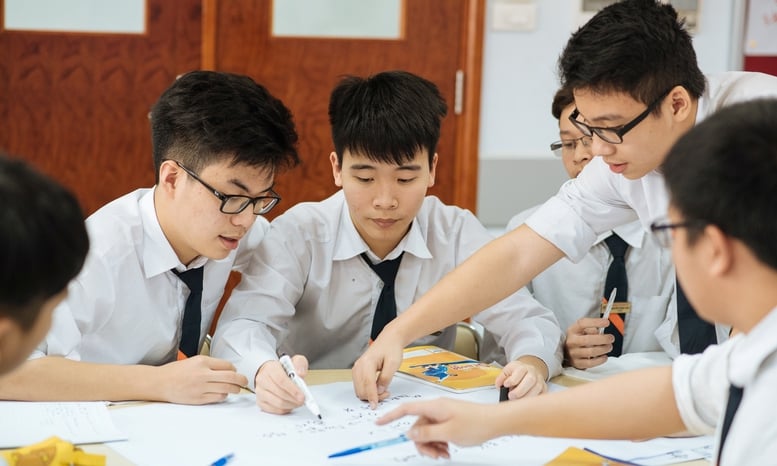
The Ministry of Education and Training proposed to adjust 6 key policy groups that have direct impact and high feasibility on education and training.
The policy group on organization and administration of the education system aims to institutionalize Part III of Resolution 71-NQ/TW, stipulating transitional provisions on the organization of the education system; applying a unified set of textbooks; terminating the operation of the School Council in public educational institutions (except for schools with international agreements); implementing the model of Party Secretary concurrently being the head of the educational institution, ensuring unified leadership and administration and improving the effectiveness and efficiency of operations.
The Draft Resolution stipulates a number of issues that are not yet regulated by law. Specifically, regarding the mechanism for digital transformation, science, technology and innovation in education, there is currently no legal document that uniformly regulates the mechanism for mobilizing, coordinating and using resources for digital transformation in the education sector. Article 5 of the Draft establishes a legal framework for this activity, allowing for socialization, public-private partnerships, development of digital infrastructure and national education databases.
Regarding the mechanism of international cooperation and integration in education, the law has not yet fully regulated the attraction and management of foreign experts and scientists and the mechanism for establishing and linking educational institutions with foreign elements. Article 6 of the draft Resolution supplements the legal framework on international cooperation, expands the autonomy of educational institutions, and links integration with ensuring national educational security.
At the same time, add Clause 5, Article 7 on free textbooks for students of general education institutions (completed by 2030) and free tuition and curriculum for National Defense and Security Education at universities and vocational education institutions. At the same time, assign the Government to prescribe a roadmap, ensuring compliance with the ability to balance the state budget, relevant laws and requirements to ensure fairness in access to education...
Avoid "brain drain" after training
On behalf of the review body, Chairman of the National Assembly's Committee on Culture and Society Nguyen Dac Vinh agreed with the necessity of the Resolution, as well as appreciated the remarkable breakthroughs. However, the review body also pointed out that the Draft Resolution still has points that need to be clarified, so that the legal document can be put into practice effectively, transparently and feasibly.
One of the notable contents of the Draft is to give the authority to recruit, mobilize, transfer and second teachers to the Director of the Department of Education and Training. This is a move demonstrating a strong spirit of decentralization, aiming to overcome the situation of decentralized management between the province - district - commune, leading to local surpluses and shortages that have lasted for many years.
The Government's submission stated: "Decentralization to Department Directors helps ensure unified human resource management across the sector, overcome fragmentation, and flexibly regulate teacher resources according to practical needs." The results of the consultation showed that 17/17 provinces and cities that sent documents agreed, affirming the feasibility of the policy.
However, the National Assembly's Committee on Culture and Society noted that the provisions in the Draft "are not strict in terms of the scope of mobilization", which could cause misunderstandings about the authority between localities. The Committee proposed to clearly stipulate "between commune-level administrative units in the same province", and at the same time, supplement the mechanism of monitoring, inspection, and periodic reporting to avoid negativity and ensure fairness in personnel mobilization.
In addition, many Delegates also raised the issue: If decentralization is too strong without accompanying control, the risk of "asking - giving" in recruitment may return in a new form.
The Government’s proposal proposes to allow the use of a single set of textbooks nationwide, instead of the many sets currently used. The reasons given are the expense, lack of uniformity and social pressure when choosing books.
The review agency also acknowledged that this is a solution to "ensure stability and consistency", but at the same time questioned whether this policy goes against the spirit of socialization and diversification of textbooks affirmed by Resolution 88 and the Law on Education.
In addition, some opinions say that the problem does not lie in the number of books, but in the appraisal, quality control and implementation. If returning to a single book set, it is necessary to clearly state the quality assurance mechanism, avoiding returning to the "monopoly" that caused many problems in the past.
A positive point that many people are interested in is that the Draft proposes free textbooks from 2030, free tuition for National Defense and Security Education at universities, and support for living expenses for doctoral students in key doctoral training programs.
However, the Review Agency proposed to clarify some contents such as: How to implement the textbook exemption policy in localities with conditions to avoid misunderstanding that priority is given to rich regions; the relationship between the new doctoral scholarship program and current programs such as Project 89, to avoid duplication causing waste of resources; clarify the responsibilities and obligations of scholarship beneficiaries to avoid the situation of "brain drain" after training.
Phuong Lien
Source: https://baochinhphu.vn/mot-so-co-che-chinh-sach-dac-thu-vuot-troi-dot-pha-phat-trien-giao-duc-dao-tao-102251117104217572.htm


![[Photo] General Secretary To Lam and National Assembly Chairman Tran Thanh Man attend the 80th Anniversary of the Traditional Day of the Vietnamese Inspection Sector](https://vphoto.vietnam.vn/thumb/1200x675/vietnam/resource/IMAGE/2025/11/17/1763356362984_a2-bnd-7940-3561-jpg.webp)





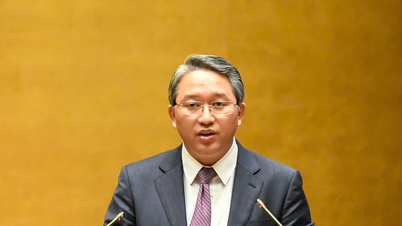

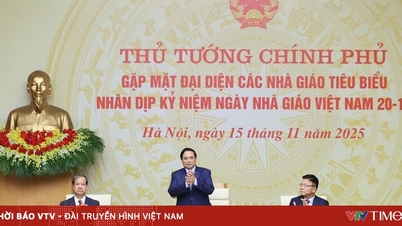



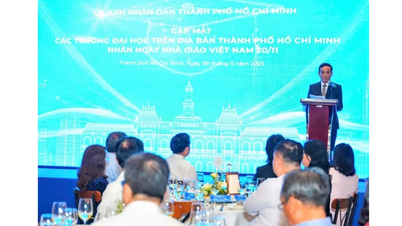



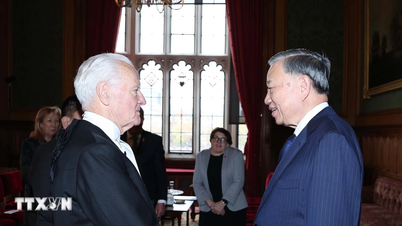
















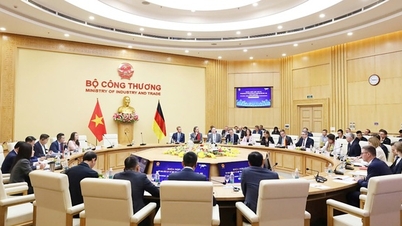

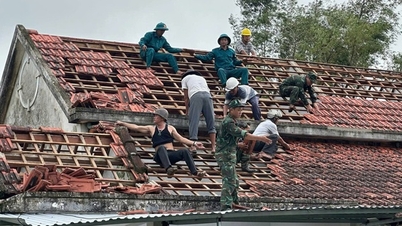
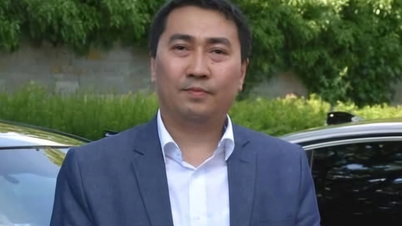
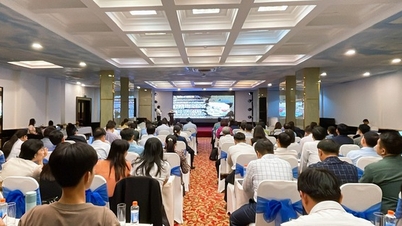


































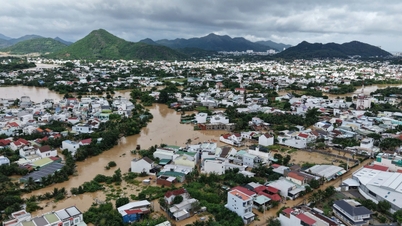


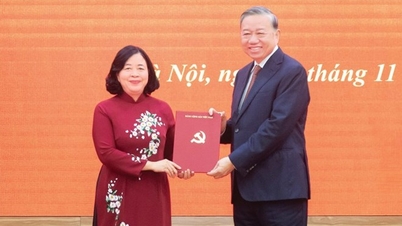


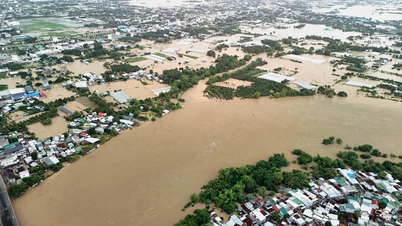









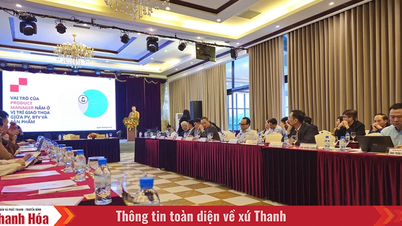







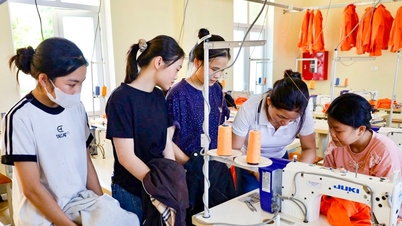















Comment (0)